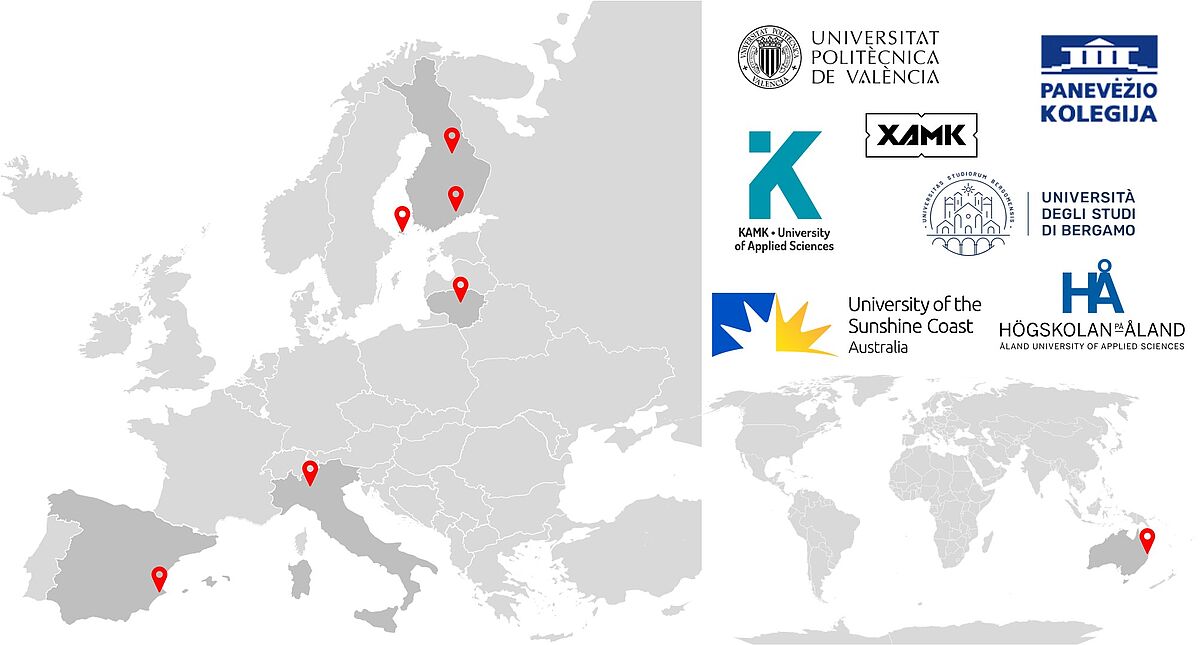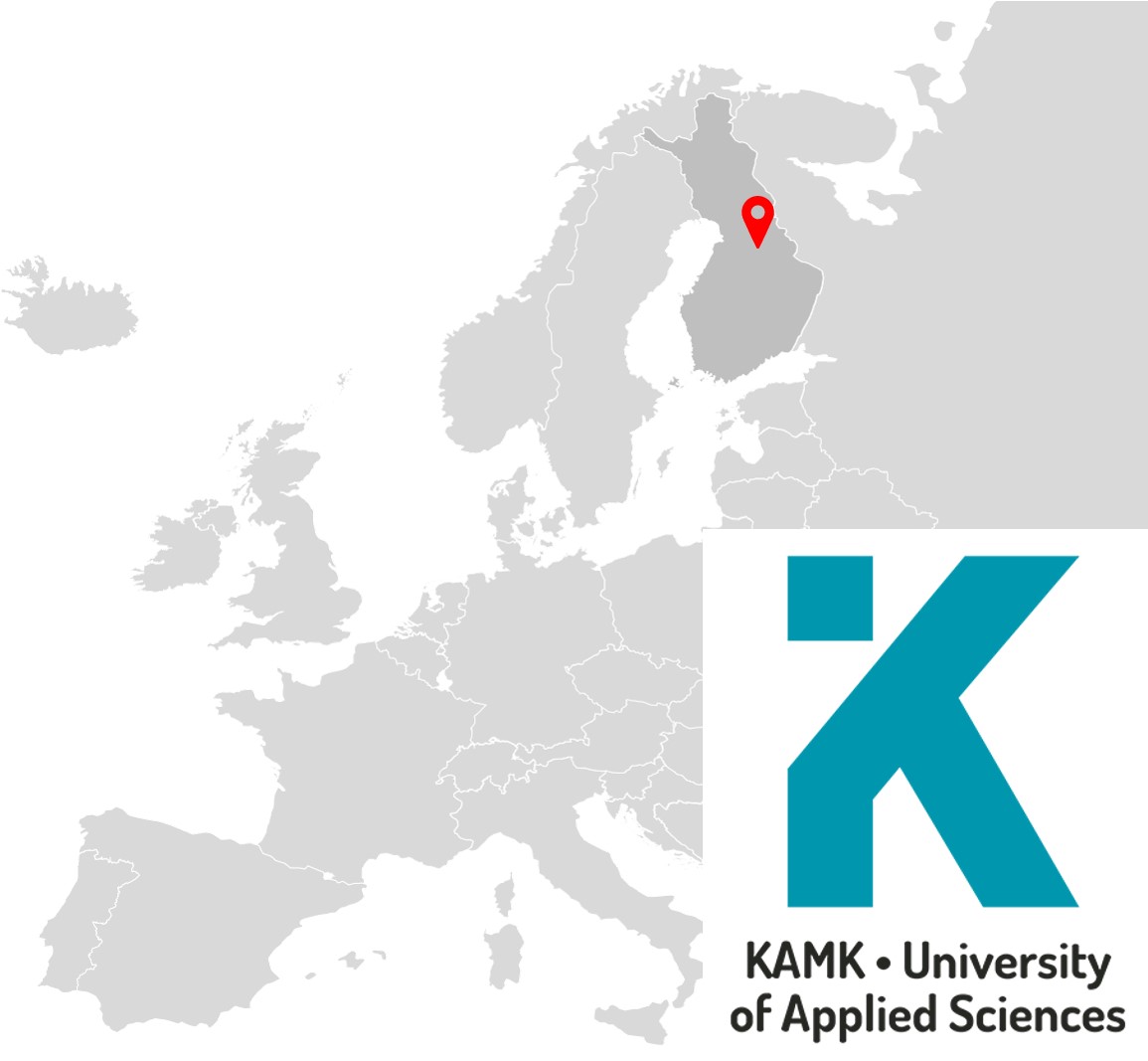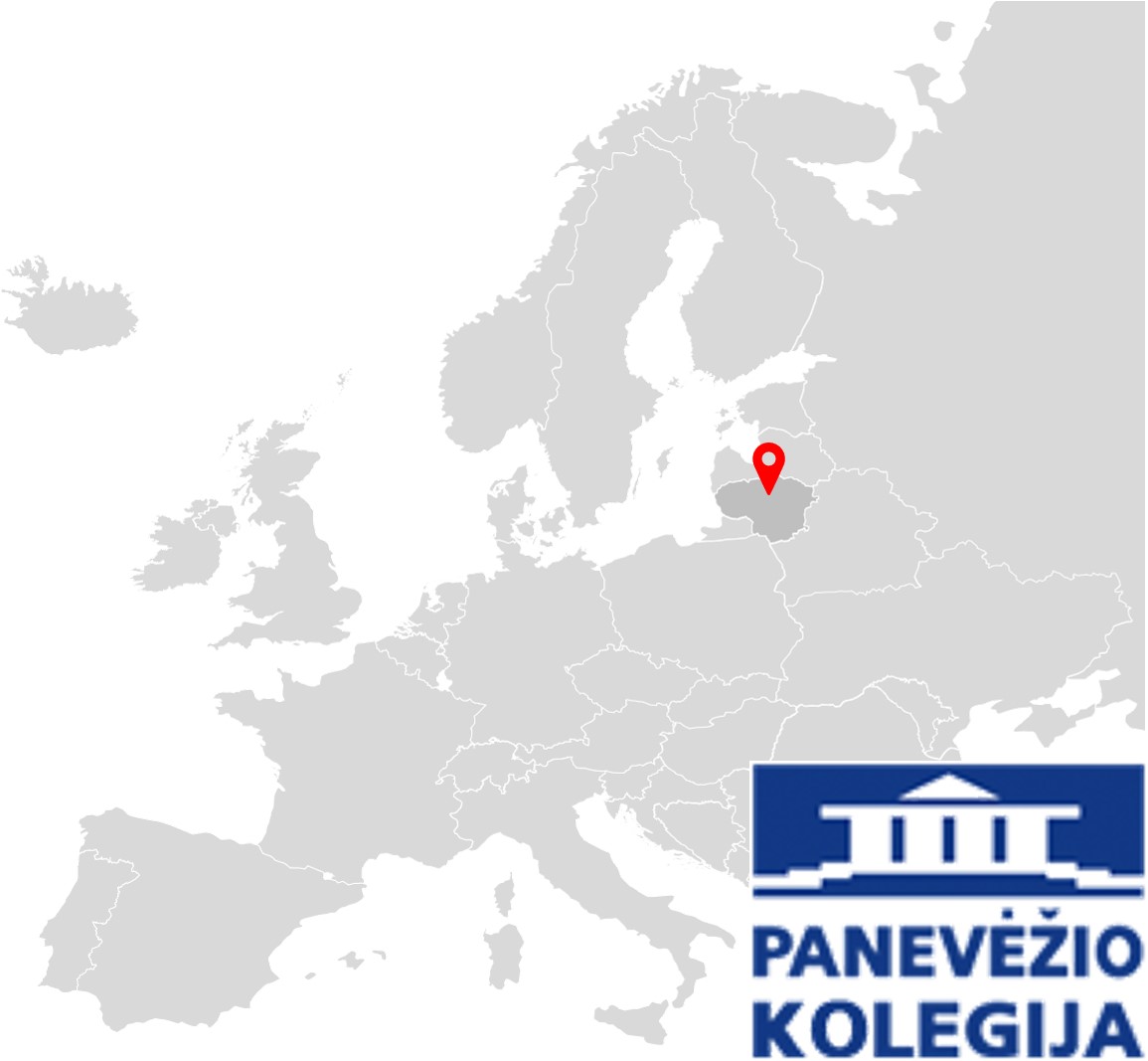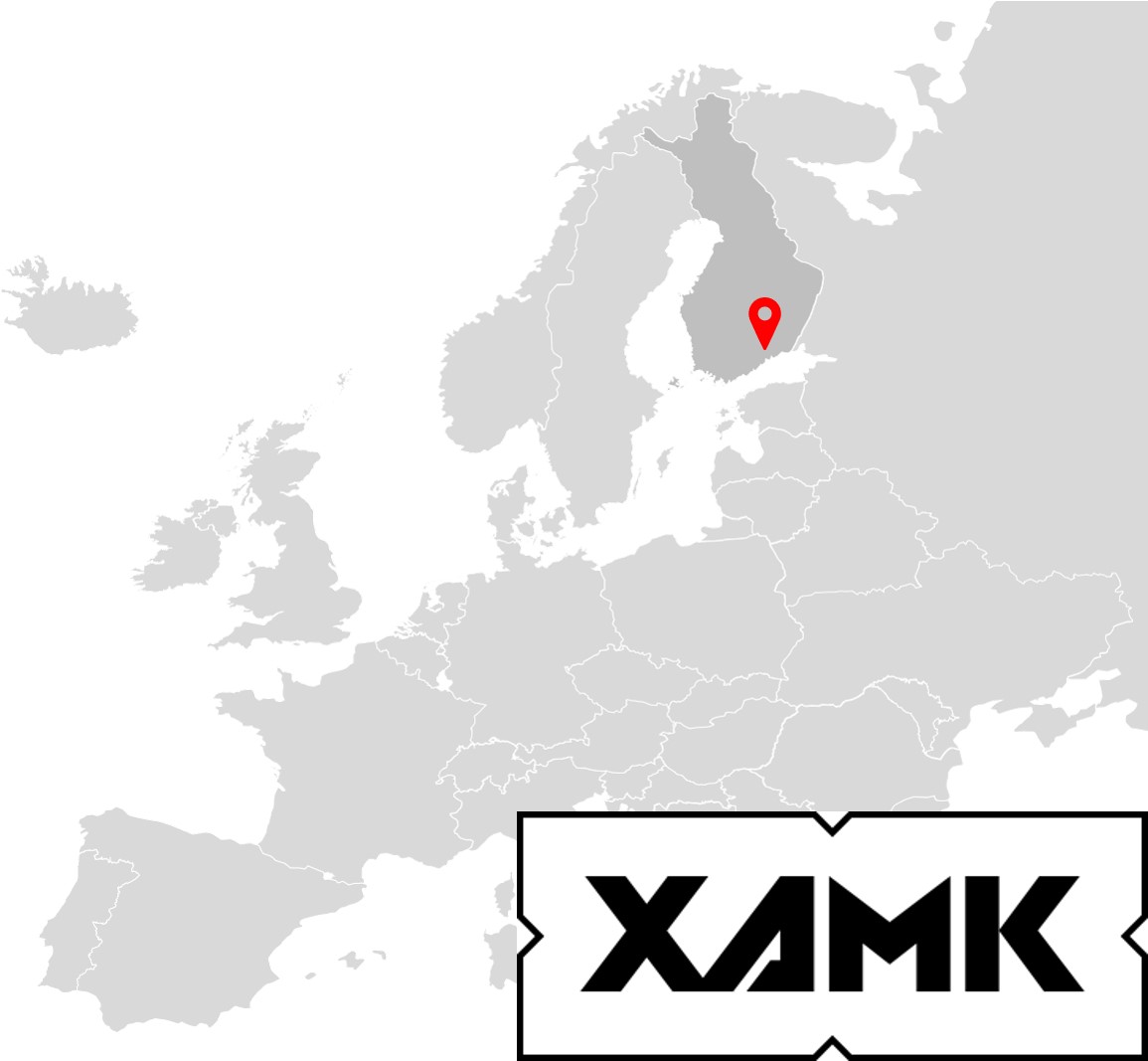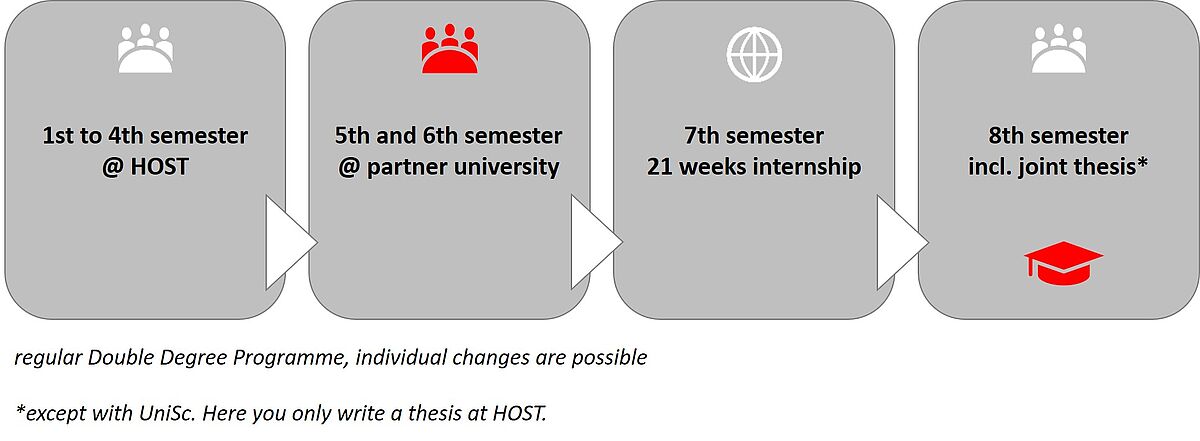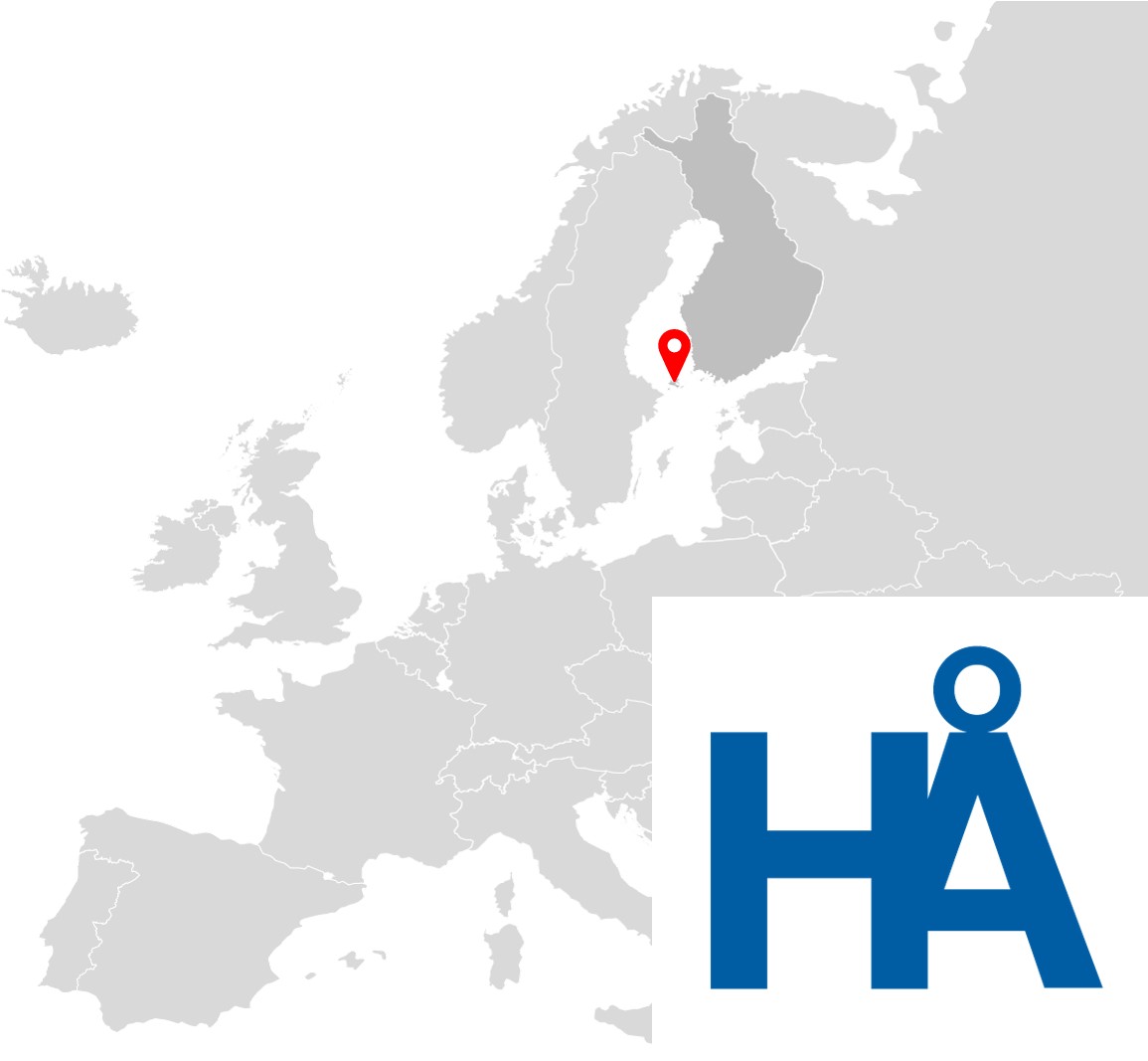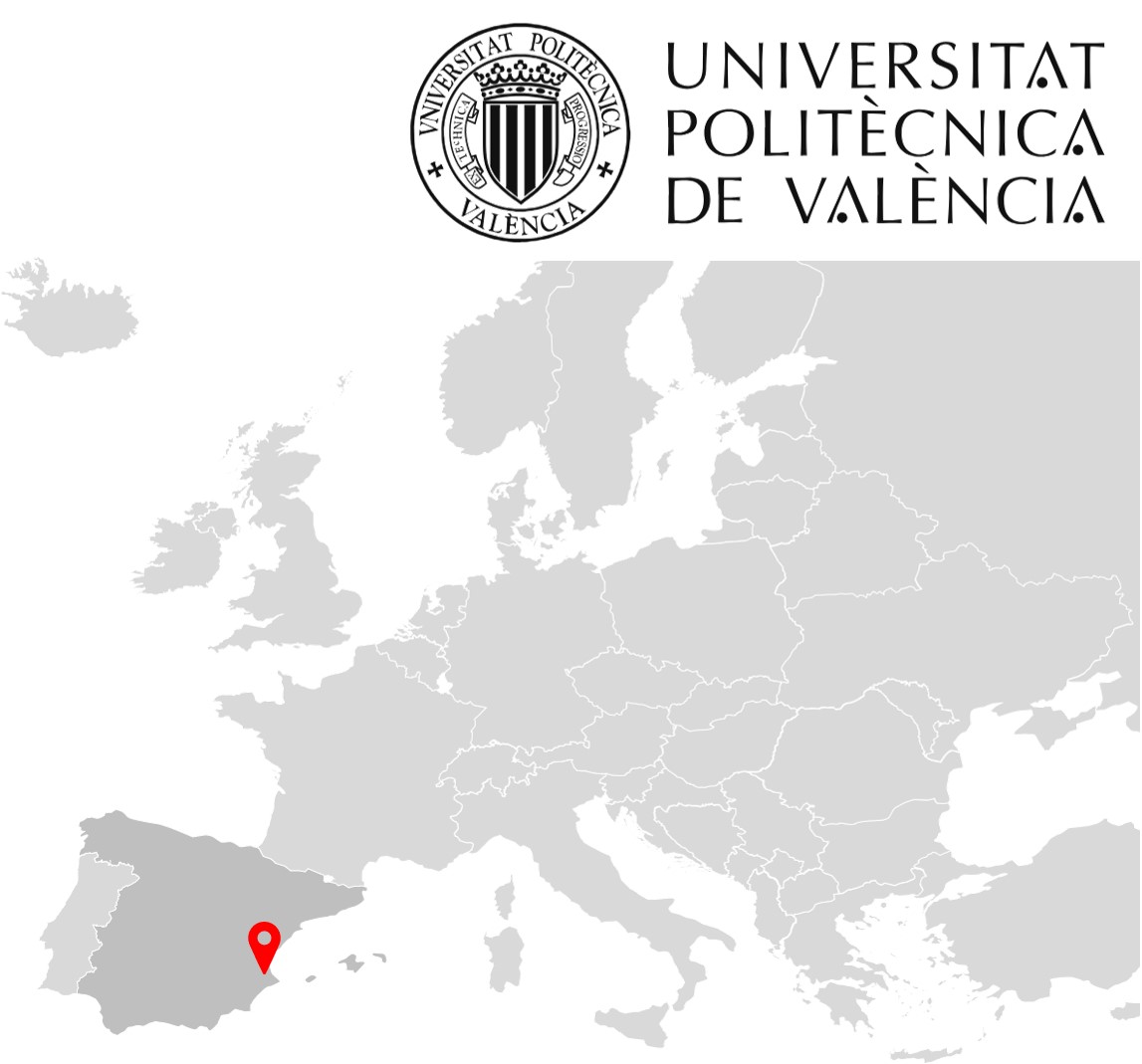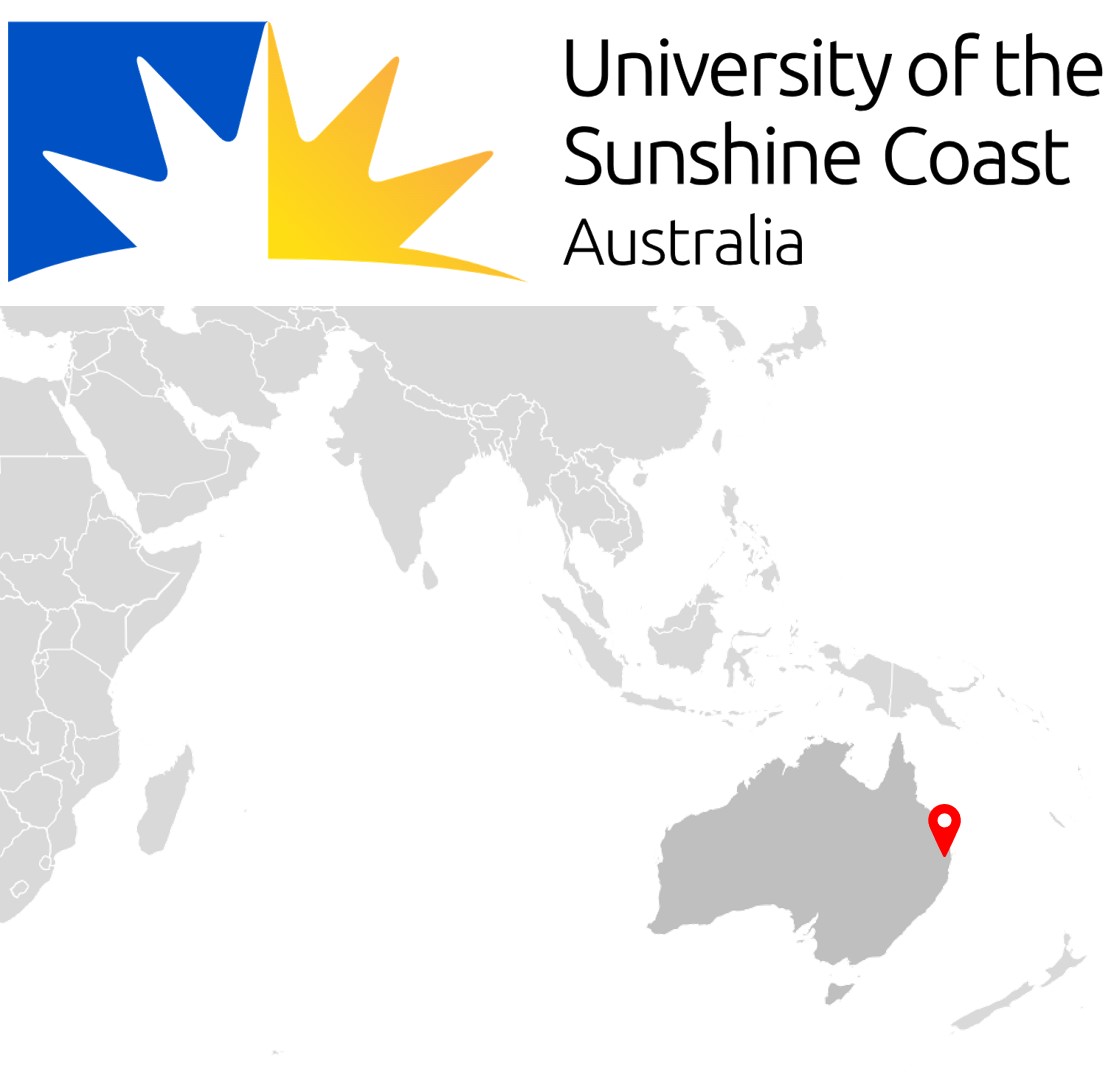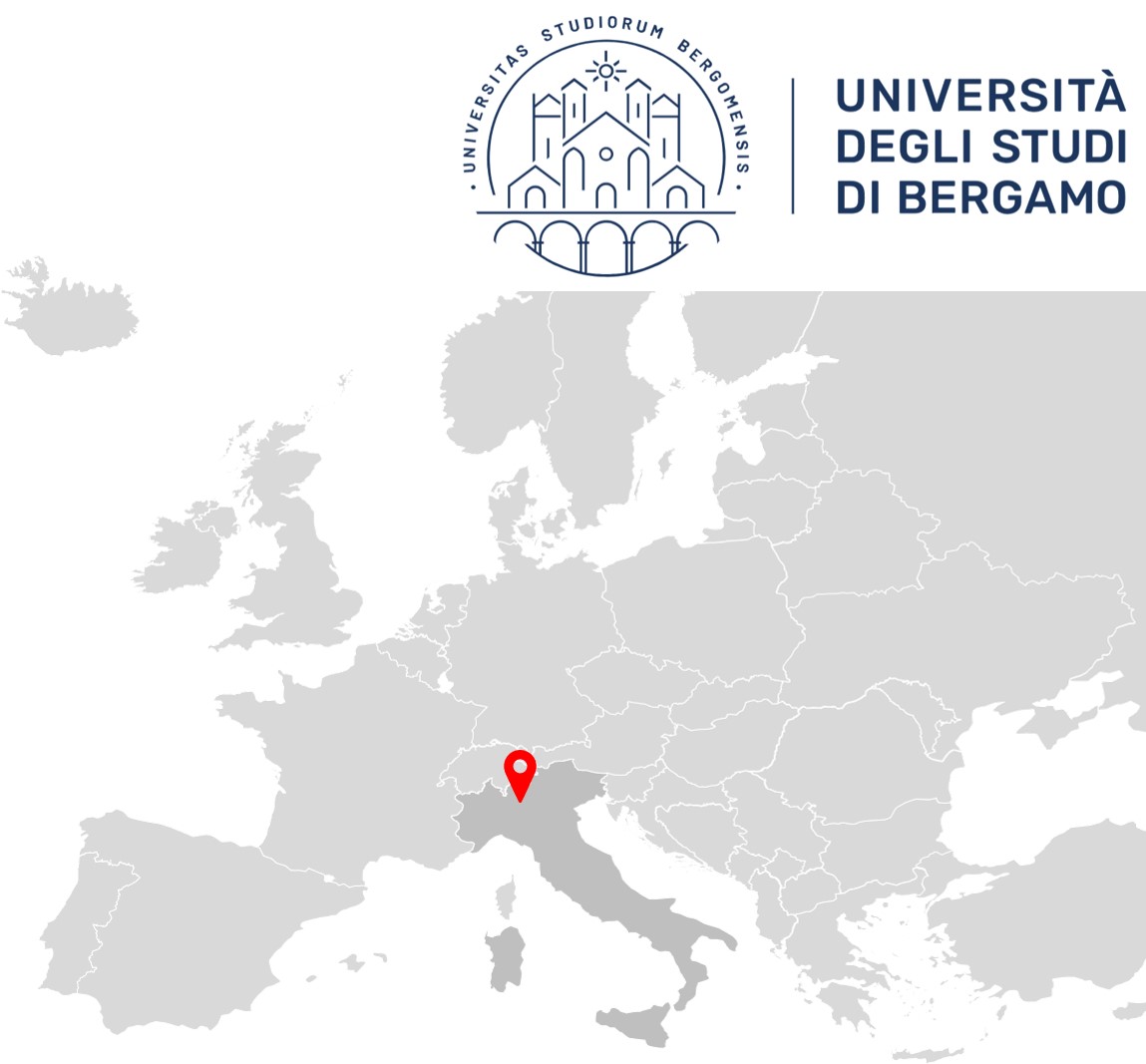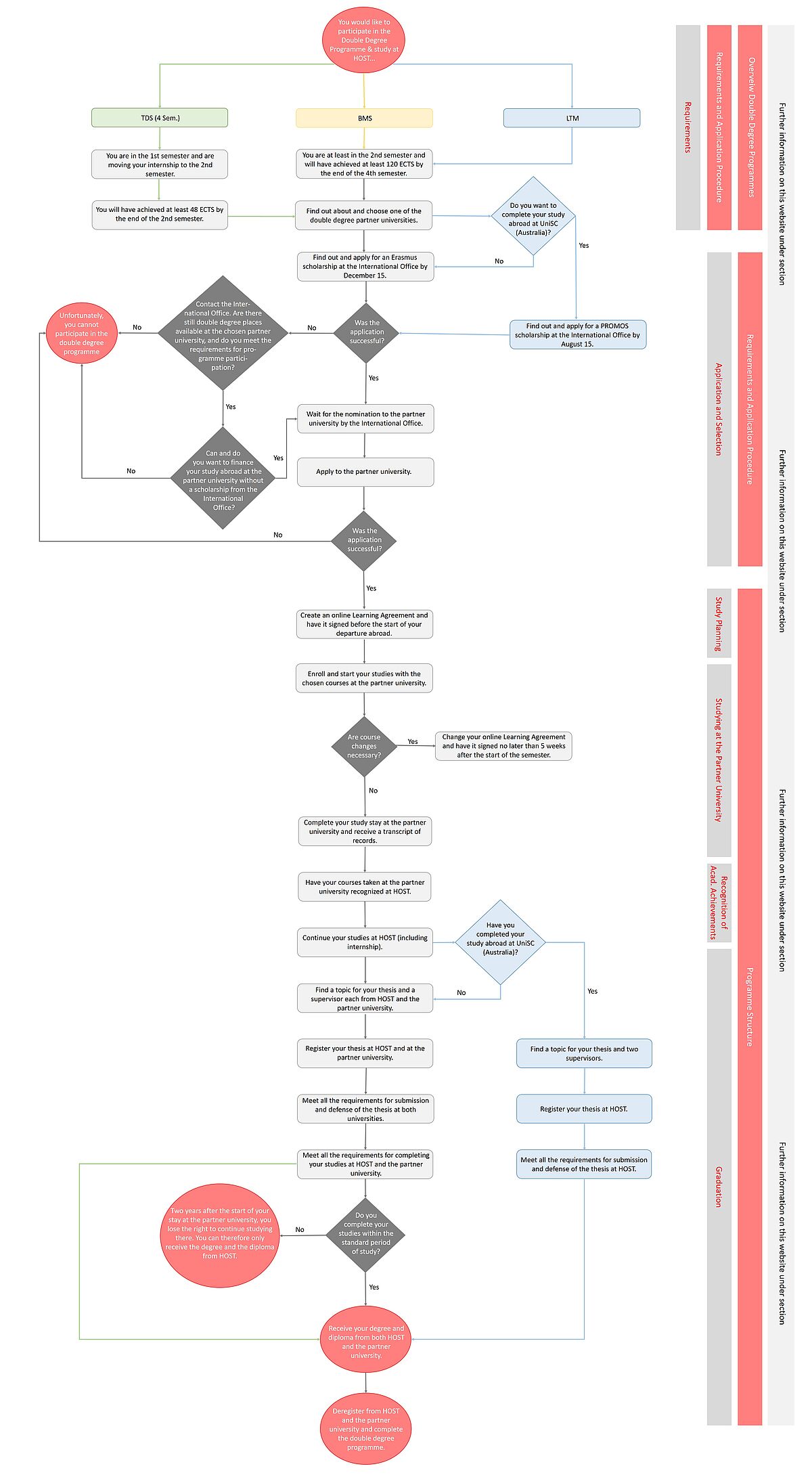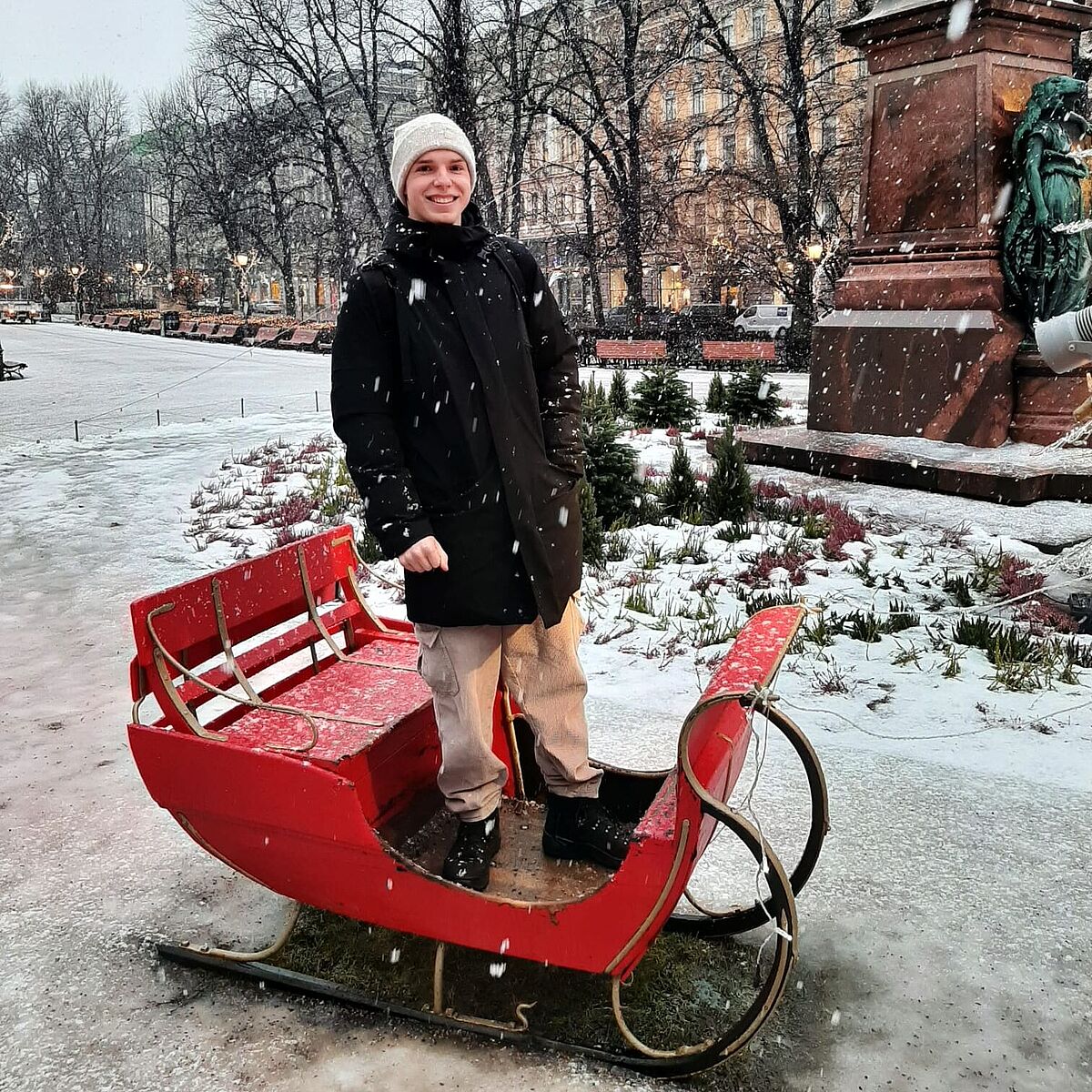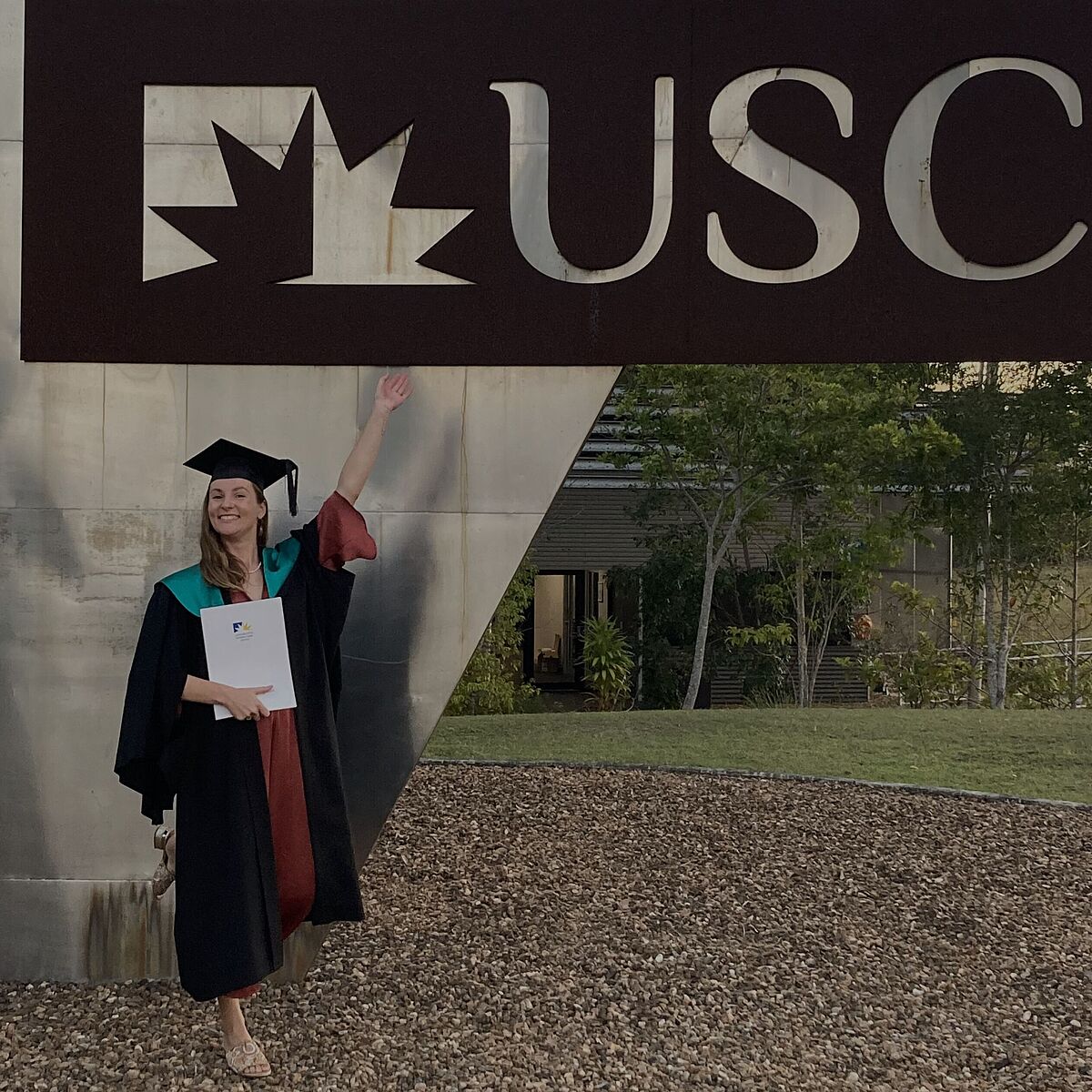Welcome to the information page for Double Degree Programmes at the School of Business Studies. A Double Degree Programme offers you the unique opportunity to earn not just one, but two degrees within your standard period of study. Learn more here about our diverse programmes and how they can enhance your academic and professional career.
The faculty is continuously working to expand the range of Double Degree Programmes. Therefore, we recommend that you visit this page regularly to stay up to date.
Number of semesters: 8 semesters
ECTS: 240 ECTS
Degree: Bachelor of Arts (B.A.)
The Double Degree Programme allows you to earn a second degree from one of the partner universities in addition to your HOST degree (B.A.) within your four-year standard period of study. The programme is structured as follows:
Kajaani University of Applied Sciences (KAMK)
Location: Kajaani, Finland
Study programme: International Business
Degree: Bachelor of Business Administration (B.B.A.)
Course examples: Human Resource Management, Leadership and Management, Corporate Community and Wellness Management, New Technologies in Business, Service Design
Panevėžio kolegija/State Higher Education Institution (PANKO)
Location: Panevėžys, Lithuania
Study programme: International Business
Degree: Professional Bachelor of Business Management
URL: https://panko.lt/en/programa/international-business-double-degree/
Course examples: International logistics, International trade, Financial markets, Financial risk management, International accounting taxes, Electronic business and management information systems, Formation of international business image, Strategic marketing planning and management, International settlements
South-Eastern Finland University of Applied Sciences (XAMK)
Location: Kouvola, Finland
Study programme: Digital International Business
Degree: Bachelor of Business Administration (B.B.A.)
URL: https://www.xamk.fi/en/exchange-degree/international-business/
Course examples: From idea to innovation, Management accounting, Human resources management, International marketing, Gathering marketing insights, Social media marketing, Global sourcing, Supplier relationship management, International trade practices
Number of semesters: 8 semesters
ECTS: 240 ECTS
Degree: Bachelor of Arts (B.A.)
The Double Degree Programme allows you to earn a second degree from one of the partner universities in addition to your HOST degree (B.A.) within your four-year standard period of study. The programme is structured as follows:
Högskolan på Åland - Åland University of Applied Sciences (HÅ)
Location: Mariehamn, Åland
Study programme: Tourism Management
Degree: Bachelor of Hospitality Management
URL: https://www.ha.ax/utbildning/studera-turism-ledarskap/
Course examples: Gastronomy Tourism, Restaurant Management, Practical leadership, Change Management, Labor Law, Decision Planning, Service Development, Environmental & Safety Management
Polytechnic University of Valencia (UPV), Escuela Politécnica Superior de Gandia
Location: Gandia, Spain
Study programme: Tourism
Degree: Bachelor in Tourism
URL: https://www.upv.es/titulaciones/GGT/indexc.html
Course examples: Gestión de la producción en alojamientos, Gestión de producción en restauración, Gestión de viajes, Comportamiento del consumidor, Creación de empresas, Dirección estratégica de empresas turísticas, Gestión de eventos y actos protocolarios, Turismo, cooperación y desarrollo
University of the Sunshine Coast (UniSC)
Location: Queensland, Australia
Study programme: Tourism, Leisure and Event Management
Degree: Diploma in Business
Course examples: The World of Tourism, Leisure and Events, Creating and Managing Event Experiences, Sustainable Tourism, Leisure and Event Management, Tourism, Sport and Leisure Policy and Planning, The Innovation and Technology Effect in TLEM, Running Meetings, Incentives, Conventions and Exhibitions (M.I.C.E) Industry Events
Number of semesters: 4 semesters
ECTS: 120 ECTS
Degree: Master of Arts (M.A.)
The Double Degree Programme allows you to earn a second degree from the University of Bergamo in addition to your HOST degree (M.A.) within your two-year standard period of study. The programme is structured as follows:
University of Bergamo (UNIBG)
Location: Bergamo, Italien
Study programme: Planning and Management of Tourism Systems
Degree: Master of Science (M.Sc.)
URL: https://ls-pmts.unibg.it/en
Course examples: Environment and sustainable tourism, Space diversity and intercultural geography, Economics of Tourism Destinations, Tourism industry, IT for tourism services, Tourism Think Tank, Cross cultrual communication, Global tourism and local development
Learn more about the requirements for participating in our Double Degree Programmes and the application process.
You can participate in the Double Degree Programme under the following conditions:
- Enrolment at the Stralsund University of Applied Sciences in the BMS, LTM, or TDS study programme.
- By the start of the stay at the partner university, at least 48 ECTS credits from the first year of study (Master's) or 120 ECTS from the first two years of study (Bachelor's) must be completed.
- Sufficient knowledge of the language of instruction at the partner university.
- Completion of 30 equivalent ECTS (1 semester) or 60 equivalent ECTS (2 semesters) at the partner university.
- Completion of the Double Degree Programme within two years (Bachelor's) from the start of the stay at the partner university.
If you are applying for an Erasmus scholarship for your stay at one of the European partner universities as part of the Double Degree Programme, which is highly recommended, you should also take the following conditions into account:
- No exhausted Erasmus funding period in the respective study cycle (this means you may be funded for a maximum of 12 months within your Bachelor's or Master's studies through Erasmus+ - including Zero Grant portions and second degrees within the same study cycle).
- Main residence not in the host country.
Students who choose to participate in a Double Degree Programme have the opportunity to apply for a scholarship to finance their studies abroad at the partner university. Popular options include the Erasmus scholarship for studying at one of the European partner universities or the PROMOS scholarship for studying at the University of the Sunshine Coast in Australia.
In the online application form, you can indicate that you wish to participate in the Double Degree Programme. The application deadline is 15 August (PROMOS) or 15 December (Erasmus) of the previous year for the start of the study abroad period in the upcoming winter semester. This means that Bachelor's students usually apply in the 2nd semester (PROMOS) or 3rd semester (Erasmus) for a study abroad period in the 5th semester, and Master's students apply in the 1st semester for a study abroad period in the 3rd semester.
The application documents for an Erasmus scholarship include:
- letter of motivation in German or English
- CV in the language of the host country or in English
- Proof of language proficiency
- current certificate of enrolment
- current transcript of records
- certificate of the provisional average grade
Detailed application instructions can be found here.
The selection of students is based on their academic performance, language skills, and motivation, among other criteria.
The International Office is the central point of contact for students seeking information on application and financing their studies abroad. Feel free to use their office hours for detailed advice.
After being selected by the International Office, applicants for the Double Degree Programme are nominated to the partner university. Subsequently, students apply directly to the partner university for participation in the programme. Following the nomination, the partner university provides them with all necessary application information, including required documents and application deadlines. The documents for applying to the partner university usually correspond to those already submitted to the International Office for the scholarship. Applicants are then informed by the partner university about their admission to the Double Degree Programme.
After being selected by the International Office and successfully applying to the partner university, students create a Learning Agreement.
The Learning Agreement is a document used in study mobility programmes such as Erasmus+. It is an agreement between the student, the home university, and the host university that governs the recognition and transfer of courses taken during the study abroad period. The Learning Agreement specifies the courses the student will take at the host university and their equivalence or credit transfer to the home university. It ensures that the courses completed abroad can be properly integrated into the student's study programme.
Under the Double Degree Agreement, equivalent courses with the respective partner university have already been established. Some of these can be found under "Course Examples" in the introduction of the respective partner university in the overview of Double Degree Programmes at the top of this page. However, you also have the option to choose other courses at the partner university. For advice on course selection, you can contact the programme coordinators of the respective study programme (BMS, LTM, or TDS) or the contact person for international relations at the School of Business Studies (contact details at the top right).
The Learning Agreement is created before the start of the study abroad period and is signed by all parties involved (home university, host university, student). During the study abroad period, it can be adjusted if necessary to accommodate changes in the course schedule or other circumstances.
A detailed guide on creating the Learning Agreement can be found here. For formal questions about it, the International Office is happy to assist.
Upon your arrival at the partner university, you will first need to enrol there. You will receive all the necessary information directly from the partner university in advance. During your stay, you will complete the courses outlined in the previously created Learning Agreement. Changes to the Learning Agreement after arrival at the partner university are possible up to five weeks after the start of the semester and must be agreed upon by the three involved parties (home university, host university, student) in the section "Changes to the Learning Agreement" (during the mobility).
Upon successful completion of the study abroad period, the partner university will issue a Transcript of Records to the student in accordance with the Learning Agreement. With the agreed Learning Agreement, it is ensured that the academic achievements completed at the partner university and recorded on the Transcript of Records are credited towards the academic achievements and periods required to obtain the degree at the home university.
The recognition of grades is carried out according to the valid grade conversion at Stralsund University of Applied Sciences and based on the principles and recommendations for the conversion of grades within the framework of temporary study abroad periods.
After studying at the partner university, students continue their (Double Degree) studies at HOST (including the internship) to fulfil all the necessary requirements for graduation.
A key component of these requirements is the submission and successful defence of the final thesis. This thesis is submitted to both universities according to their respective guidelines and is jointly supervised by a supervisor from HOST and a supervisor from the partner university. The defence can be conducted online. The thesis is evaluated according to the criteria of each university, and the final grade is determined as the average of both evaluations.
For LTM students participating in the Double Degree Programme with UniSC: they write their final thesis exclusively under the supervision of HOST and submit it only there.
Upon meeting all requirements, students receive two separate degrees: one from HOST and one from the partner university.
Find answers to frequently asked questions about our Double Degree Programmes. If your question is not answered, do not hesitate to contact us.
Essentially, every Double Degree Programme is also an exchange programme, but not vice versa. In both programmes, students attend courses at a foreign partner university for a limited time (usually 1 or 2 semesters) and then return to their home university (HOST). Students participating in a regular exchange programme receive their degree solely from HOST. In contrast, students in a Double Degree Programme receive a degree from both HOST and the partner university, with their final thesis typically supervised jointly by both institutions.
For your studies at HOST, you only pay the regular semester fee, with no additional tuition fees. Likewise, during your stay at a partner university, EU students generally do not incur tuition fees. An exception is the University of the Sunshine Coast (UniSC) in Australia, where HOST students receive a 20% discount on tuition fees under the partnership agreement.
For non-EU students, tuition fees may apply for their stay at the partner university.
As in Stralsund, all students incur costs for accommodation, meals, leisure activities, and similar expenses during their stay at the partner university. However, there are various options for financial support for your studies abroad. For example, you can apply for an Erasmus scholarship for studying at one of the European partner universities or a PROMOS scholarship for studying at UniSC. For more information and detailed advice, please use the office hours of the International Office. You can find more information here.
When I applied for BMS in 2019, the opportunity to do a Double Degree in Finland was a significant reason for my decision. I had always wanted to spend an extended period abroad, and the exchange semester in Finland was the ideal first experience in this direction. During my time in Kouvola, I made many new international friends. The courses there are very practical and heavily focused on digital business practices. After completing my exchange in Finland, my wanderlust was sparked. Therefore, three months later, I went to Norway for a year for my internship and bachelor's thesis. Personally, the Double Degree has given me a lot, and I highly recommend it to all students.
Learning languages and their cultures has always been an important part of my life, and I wanted to deepen this in my studies. That's exactly why the Leisure and Tourism Management programme, where I spend a year in Valencia/Gandía and can even complete my Bachelor's with a Double Degree, was the best option for me. Living in Spain and immersing myself in the culture was a completely new experience, one I remember fondly and would not want to miss. Study groups that ended with volleyball on the beach, professors with whom you could have a coffee on campus after class, or sunsets enjoyed with tapas... an unforgettable time that I wish for everyone.
What an experience! The opportunity to go to Australia for a year and return with an additional bachelor's degree was a decisive reason for me to study at HOST. And what can I say? I would recommend it to everyone. UniSC offers not only practical courses but also very personal support and great international exchange. Participating in the Double Degree Programme not only provides better opportunities for a future international career but is also THE chance to immerse yourself in the Australian lifestyle, see how this country teaches, learns, and lives, make international friendships, and the best part: enjoy life by the sea. My conclusion: Definitely do it!

